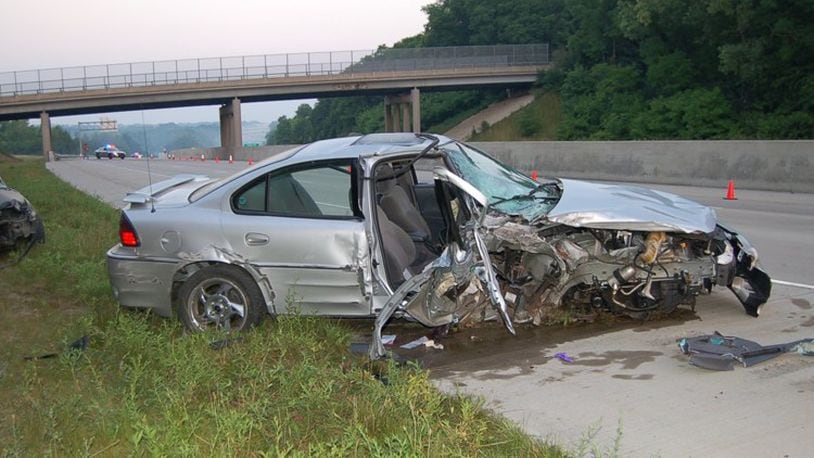Mary Montgomery was a stripper at The Living Room who had consumed alcohol purchased by customers and drove away in the early morning hours of July 4, 2010.
RELATED: Dayton stripper case heads to Ohio Supreme Court
That’s when Montgomery swerved across three lanes of traffic on Interstate 70, smashed into the back of the car driven by Johnson’s fiance, pinning the vehicle against a retaining wall.
In June 2013, a Montgomery County Common Pleas Court jury awarded $2.85 million to Johnson, who suffered a broken neck, broken arm and fractures to several facial bones. Johnson’s medical treatment at that point included 11 surgeries and $866,000 in bills.
The 2nd District Court of Appeals overturned the verdict and Johnson appealed to the Supreme Court.
Montgomery was sentenced to six months in jail for vehicular assault and drunk driving.
The arguments heard at a special off-site session at Morgan High School in McConnelsville debated the details about if the Dram Shop Act limits the liability of a liquor permit holder when an intoxicated patron causes harm.
EARLIER: Strip club not liable for injuries caused by stripper in car crash
When asked by Justice Terrence O’Donnell if the case was an exception to the Dram Shop Act, Cole said it was not. “The point is that the Dram Shop Act’s scope does not extend to cases involving intoxicated workers.”
Cole said Ferraro testified that 80 to 85 percent of the businesses dancers drink alcohol nightly even though drinks for performers included an up charge. Cole said much of the club’s profits come from drinks bought for dancers.
Supporters for Johnson include Mothers Against Drunk Driving, the Ohio Association for Justice and the office of Ohio Attorney General Mike DeWine, the father of Justice Pat DeWine.
EARLIER: Drunk strip-club dancer changes woman’s life
Bacon argued that there was no evidence that Montgomery was ever served an alcoholic beverage when she was noticeably intoxicated.
“It’s a common sense, bright-line rule that allows permit holders to conduct their business and it also allows people to know when and when not liability will be imposed,” Bacon said, who admitted he couldn’t point to a case where the Dram Shop Act applied to a worker. “This isn’t a failure of law. This is a failure of proof.”
In his rebuttal argument, Cole said other courts in other states with similar Dram Shop Acts have marked a difference between workers and customers.
FOLLOW: Mark Gokavi on Twitter and Facebook
“The question is can you employ … people to be in your establishment essentially for the purpose of drinking and then not take reasonable steps at the end of the night to make sure that they get home in a way that’s safe — both to themselves and to other people who are traveling down the road,” Cole said. “That’s what makes patrons and dancers, in this context, different.”
The justices said they would take the arguments under advisement and rule at a later date.
About the Author
